Lawyer AI and the New Era of Smart Legal Technology
Artificial intelligence is transforming the legal industry in powerful ways. Despite common misconceptions, an AI lawyer is not a machine or a robot. An lawyer AI is a licensed human legal professional who uses AI tools to enhance their practice or specializes in the legal and regulatory issues that surround AI development.
In today’s digital era, AI helps lawyers work faster, smarter, and with greater accuracy. This article explains in depth what an AI lawyer does and how AI is reshaping modern legal practice.
What Is an AI Lawyer?
An AI lawyer is a licensed attorney who uses artificial intelligence to support legal work and who advises clients on laws and risks related to AI technology.
They are human professionals who combine deep legal knowledge with technological expertise. Their work includes using AI tools in legal workflows and guiding clients through AI-related regulations, privacy issues, and risk management.
Definition of Lawyer AI
Lawyer AI refers to the application of artificial intelligence and machine learning technologies within the legal profession to automate, streamline, and enhance traditional legal tasks. These tools are assistants, not replacements for human lawyers, who still provide the essential judgment, ethical reasoning, and personalized client interaction that AI lacks.
Key Applications of AI in Law
AI tools are used across various legal functions to increase efficiency, accuracy, and cost-effectiveness:
- Legal Research: AI-powered platforms (like Westlaw Edge, LexisNexis, and Casetext) can search and analyze vast databases of case law, statutes, and regulations in seconds, providing relevant precedents and summaries that would take humans hours to find.
- Document Review and E-Discovery: AI significantly speeds up the e-discovery process by rapidly scanning and identifying relevant information and potential risks within large volumes of electronic documents, reducing manual effort and human error.
- Contract Analysis and Management: AI tools can automatically review contracts to identify key clauses, flag inconsistencies or missing information, ensure compliance, and suggest improvements, drastically cutting down review time.
- Document Automation and Drafting: Lawyers use AI to generate first drafts of legal documents, such as contracts, motions, or letters, using intelligent templates that pull data from case records, which saves time on repetitive tasks.
- Predictive Analytics: By analyzing historical case data and trends, AI can offer insights into potential case outcomes, helping lawyers develop stronger strategies and advise clients more effectively on whether to proceed to trial or settle.
- Client Communication: AI-powered chatbots and virtual assistants handle basic client inquiries, schedule appointments, and provide case status updates 24/7, improving client service and freeing up lawyers for more complex work.
Benefits and Ethical Considerations
Benefits:
- Increased Efficiency & Productivity: Automates time-consuming, routine tasks, allowing lawyers to focus on high-value, strategic work.
- Cost Reduction: Streamlines operations, which can lead to lower costs for law firms and more affordable services for clients, potentially improving access to justice.
- Improved Accuracy: Minimizes human error in document handling and data analysis.
Ethical Considerations & Challenges:
- Accuracy of Output: AI can “hallucinate” or provide inaccurate information, necessitating rigorous human oversight and review of all AI-generated content.
- Data Security and Privacy: Handling sensitive client information with third-party AI tools raises concerns about confidentiality and data breaches.
- Bias: AI systems can perpetuate existing human biases if trained on biased data, which could lead to unfair outcomes.
- Lack of Human Judgment: AI cannot replicate a lawyer’s empathy, ethical judgment, critical thinking, and nuanced understanding of complex legal contexts.
Bar associations, such as the California Bar, have issued guidelines urging lawyers to use AI responsibly, maintain human oversight, and ensure transparency with clients about its use.
How AI Enhances Legal Practice
Artificial intelligence has become one of the most impactful tools in today’s law firms. Here are the primary ways AI supports legal professionals.
1. Legal Research
AI platforms can scan large collections of case law and statutes in seconds. They deliver relevant results, summaries, and patterns much faster than manual research.
2. Document Review and Analysis
AI assists in e-discovery and due diligence by reviewing thousands of documents automatically. It detects key clauses, risks, mistakes, and missing information with high accuracy.
3. Document Drafting and Automation
Generative AI helps produce drafts of contracts, briefs, memos, and client letters. Lawyers then refine and verify the content for accuracy and compliance.
4. Predictive Analytics
AI analyzes past case outcomes and judicial behavior to help lawyers make informed, strategic decisions for litigation and negotiation.
5. Client Management and Communication
AI chatbots and virtual assistants manage initial client intake, answer basic questions, arrange appointments, and support billing processes. This improves client experience and saves time.
6. Compliance Monitoring
AI systems track regulatory updates and compare them with a firm’s documents. This helps lawyers maintain compliance and avoid legal risks.
The Role of an AI Law Specialist
The field of AI law continues to expand. Lawyers who specialize in this area work on issues related to:
Data privacy and data protection
Understanding regulations such as GDPR and CCPA.
Intellectual property related to AI
Navigating questions about algorithms, training data, and AI-generated content.
Liability and risk management
Determining responsibility when AI causes errors or biased outcomes.
AI governance and ethics
Ensuring transparency, fairness, and responsible use of AI.
Regulatory compliance
Understanding emerging laws including the EU AI Act and global AI standards.
AI law specialists help organizations deploy AI responsibly while avoiding legal complications.
Benefits of Using AI in Legal Practice
Increased efficiency
AI speeds up repetitive tasks and improves workflow.
Cost reduction
Less manual labor reduces costs for both lawyers and clients.
Improved accuracy
AI offers consistent results in large-scale document review.
Better client service
Lawyers gain more time for meaningful communication and personalized support.
Popular Lawyer AI Tools and Platforms
1. Harvey AI

Harvey AI is an advanced legal AI platform used by major global law firms. It supports legal research, drafting, summarization, and due diligence using large language models trained specifically on legal data.
Advantages:
- Excellent for large scale legal research and drafting
- High accuracy and fast response time
- Trusted by top international law firms
- Strong integration with legal workflows
Disadvantages:
- Expensive for small firms and solo lawyers
- Not beginner friendly
- Requires strict data governance to use safely
2. AI Lawyer Pro
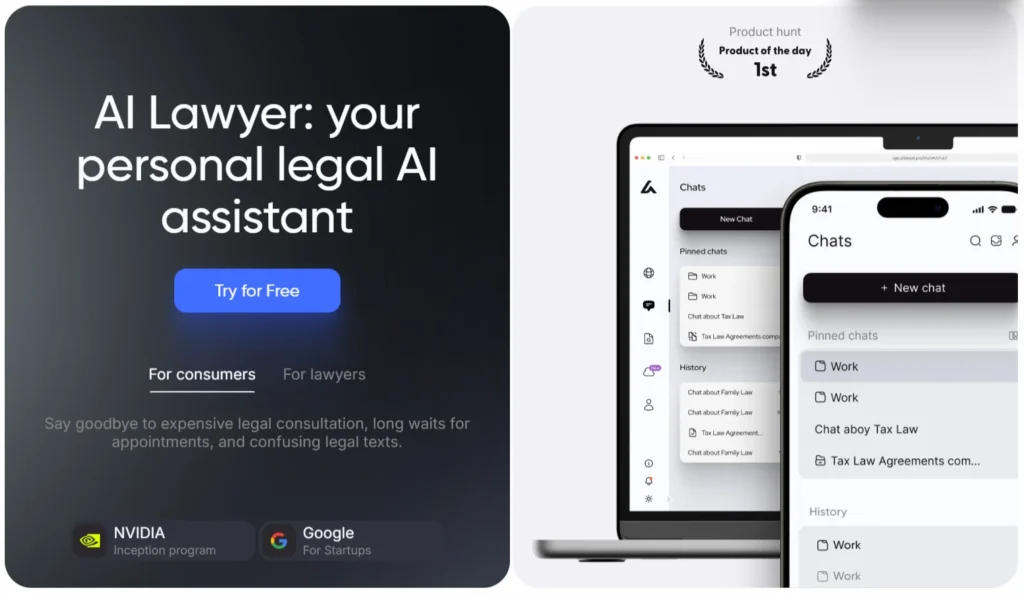
AI Lawyer Pro focuses on instant legal document creation, contract drafting, and automated legal explanations. It is designed for smaller firms, freelancers, and SMEs.
Advantages:
- Very fast contract generation
- Affordable and easy to use
- Great for simple to medium complexity documents
- Suitable for non technical users
Disadvantages:
- Less powerful than enterprise grade tools
- Not ideal for highly complex legal matters
- Limited litigation features
3. Lexis Plus AI (LexisNexis AI)
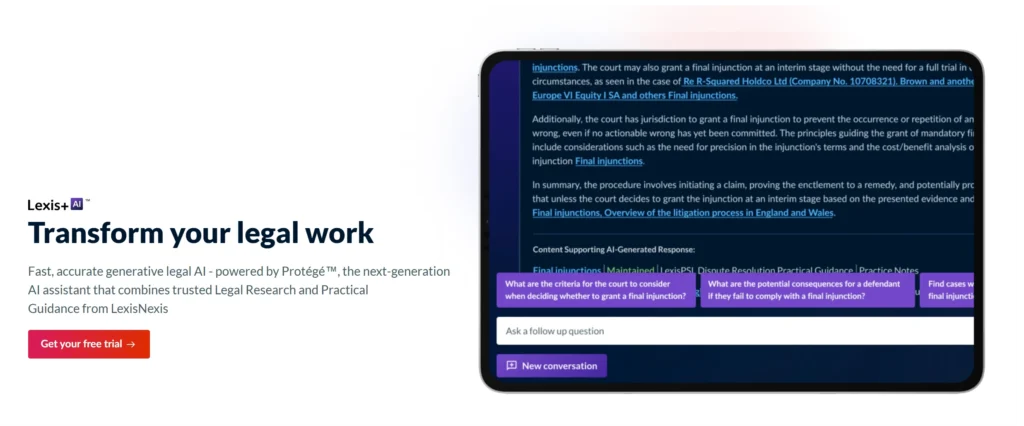
Lexis Plus AI is one of the most comprehensive legal research platforms in the world, offering deep databases of case law, statutes, regulations, and legal analytics.
Advantages:
- Extremely comprehensive legal research
- Strong citation accuracy
- Well trusted in the US and Europe
- Up to date statutes and regulations
Disadvantages:
- Expensive subscription model
- Mostly focused on US and EU jurisdictions
- Steep learning curve for beginners
4. Casetext CoCounsel
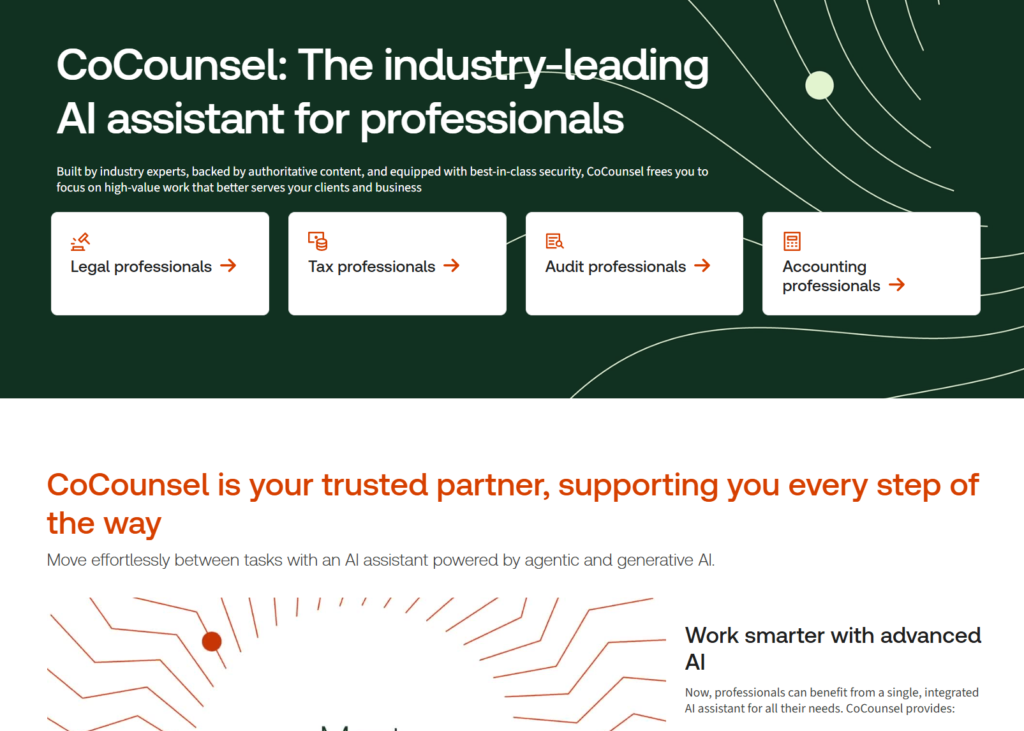
CoCounsel by Casetext is an AI powered legal assistant that handles document review, deposition preparation, research, and compliance tasks.
Advantages:
- Excellent for litigation support
- Very fast document review
- Efficient at summarizing large case files
- Helps reduce discovery workload
Disadvantages:
- Mainly designed for US legal systems
- Less flexible for transactional legal work
- Requires training for optimal use
5. Lex Machina
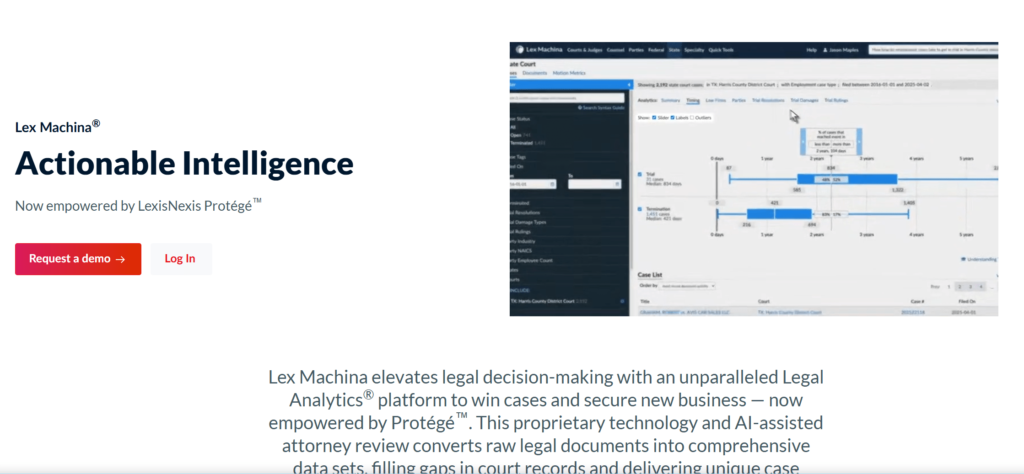
Lex Machina provides litigation analytics, offering predictions and insights based on judge behavior, court trends, and case outcomes.
Advantages:
- Strong predictive litigation insights
- Helps develop litigation strategy
- Excellent court and judge analytics
- Widely used in corporate litigation
Disadvantages:
- Limited to US jurisdictions
- Not designed for drafting or research
- Expensive for small firms
6. vLex Vincent AI
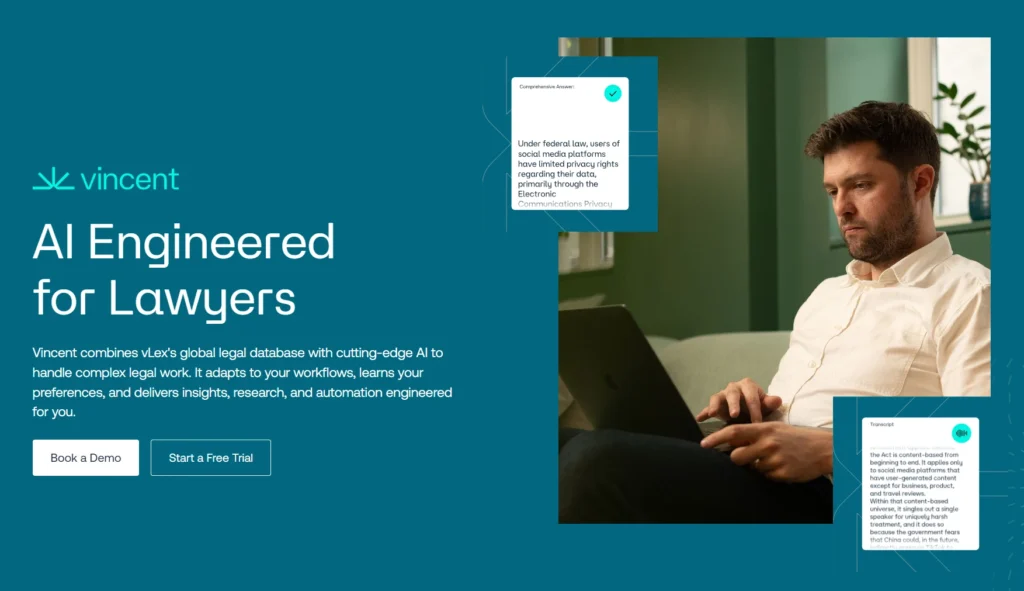
Vincent AI by vLex is a global multilingual research tool capable of analyzing legal material across multiple jurisdictions and languages using AI driven insights.
Advantages:
- Ideal for international legal research
- Supports multiple languages
- Large global legal database
- Excellent for cross border cases
Disadvantages:
- Less optimized for specific US legal tasks
- Requires some familiarity with global legal systems
- Pricing varies depending on region
7. Hukumonline AIlex
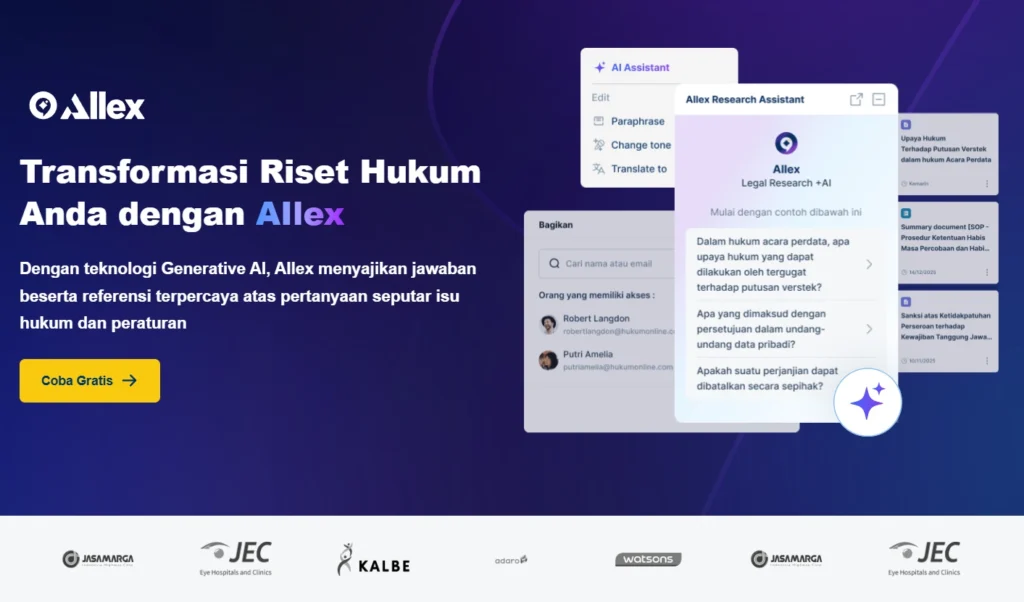
AIlex is a localized Indonesian legal AI tool designed to monitor regulatory changes, interpret local laws, and support compliance work for Indonesian lawyers and companies.
Advantages:
- Specialized for Indonesian regulations
- Very useful for compliance monitoring
- Localized language and legal references
- Easy for Indonesian professionals to use
Disadvantages:
- Only works for Indonesian law
- Limited global applicability
- Smaller database compared to global tools
8. Legal Hero
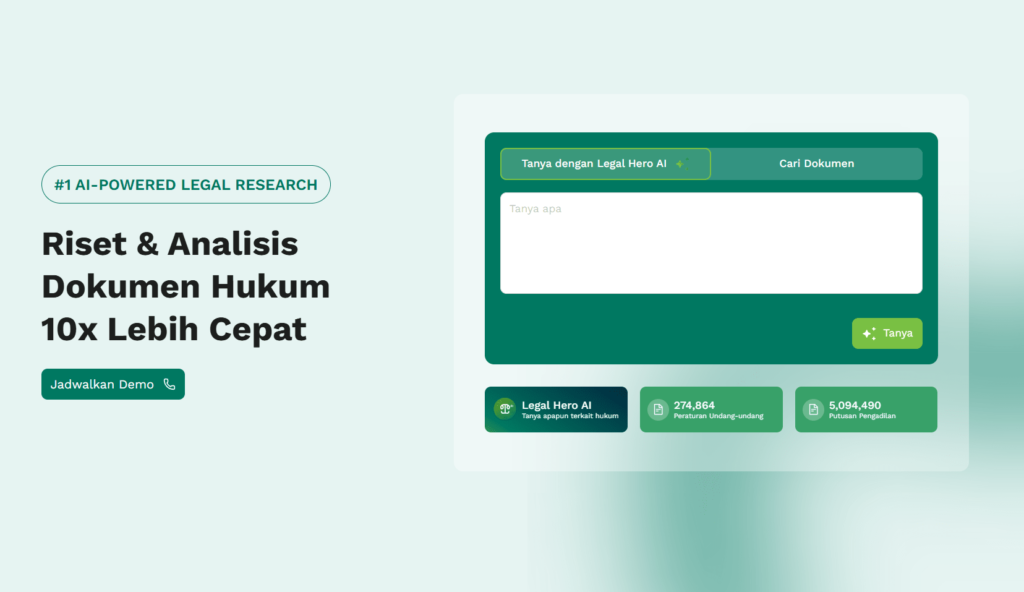
Legal Hero provides AI powered contract creation, editing, and automation. It is widely used by startups and SMEs needing fast, simplified legal workflows.
Advantages:
- Great for startups with limited budgets
- Fast and simple contract automation
- Intuitive interface for non lawyers
- Useful for repetitive legal documents
Disadvantages:
- Not suitable for complex legal drafting
- Limited research and litigation support
- Less advanced than enterprise tools
Leading AI Legal Tools and What They Offer
Below is a comparison table showing how popular AI lawyer platforms differ.
AI Tools Comparison Table
| AI Tool | Key Strength | Best For | Region |
|---|---|---|---|
| Harvey AI | Research and drafting | Large law firms | Global |
| AI Lawyer Pro | Fast contract creation | Solo lawyers and SMEs | Global |
| Lexis Plus AI | Comprehensive research | Firms and enterprises | US and Europe |
| Casetext CoCounsel | Document review | Litigation teams | United States |
| Lex Machina | Case prediction | Corporate litigation | United States |
| vLex Vincent AI | Multilingual research | International firms | Global |
| Hukumonline AIlex | Local compliance | Indonesia | Indonesia |
| Legal Hero | Contract automation | Startups and SMEs | Global |
Why Lawyer AI Is Valuable for Legal Professionals
Lawyers, firms, and clients all benefit from AI driven legal services.
Time Efficiency
AI reduces long manual tasks into quick automated actions. Research that previously took hours now takes minutes.
Better Accuracy
AI avoids human fatigue and identifies issues that are sometimes overlooked in manual reviews.
Cost Savings
Clients appreciate transparent fees. Firms cut operational costs without lowering service quality.
Data Driven Decisions
AI provides insights that help lawyers make smarter decisions related to compliance, risk, and litigation.
Greater Legal Accessibility
AI lawyer websites and chatbots help individuals access basic legal information more easily.
Challenges and Ethical Concerns in AI for Law
Despite its power, AI legal technology has limitations.
AI Hallucinations
AI models may occasionally generate inaccurate information. Human oversight remains essential.
Professional Responsibility
Lawyers must ensure confidentiality, accuracy, and compliance when using AI tools.
Data Privacy Risks
Firms must choose secure platforms that protect sensitive information.
Concerns About Job Impact
AI may replace repetitive tasks but cannot replace strategic legal thinking.
What the Future Looks Like for AI Lawyers
AI will continue shaping the legal industry in strong and surprising ways.
AI Enhanced Court Processes
Some regions are experimenting with AI assisted decision making for simple cases.
Automated Contract Lifecycles
From drafting to negotiation to signature, automation will dominate entire contract processes.
Personalized AI Lawyer Assistants
Firms will use custom AI systems trained on their own databases, templates, and case histories.
Predictive Compliance Tools
Industries with heavy regulation such as finance and healthcare will rely heavily on AI to detect risks before they happen.
Conclusion
The rise of lawyer AI marks one of the biggest transformations in the legal world. From research to drafting to analytics, AI enables lawyers to work smarter, faster, and more accurately.
You do not need to be a technology expert to benefit from these tools. You only need the willingness to adapt and explore.
FAQ (Frequently Asked Questions)
Can AI replace lawyers in court?
No. AI can support legal tasks but cannot represent clients in court.
Will lawyer AI make attorneys less valuable?
Not at all. It increases the value of attorneys by freeing up time for strategy and negotiation.
Is lawyer AI safe and reliable?
Reputable platforms use encrypted systems and strict privacy rules. Human verification remains necessary.
Which industries benefit most from legal AI?
Finance, healthcare, real estate, human resources, and corporate sectors.
Can AI offer real legal advice?
AI provides information, not professional legal advice. Only licensed lawyers can give official legal counsel.

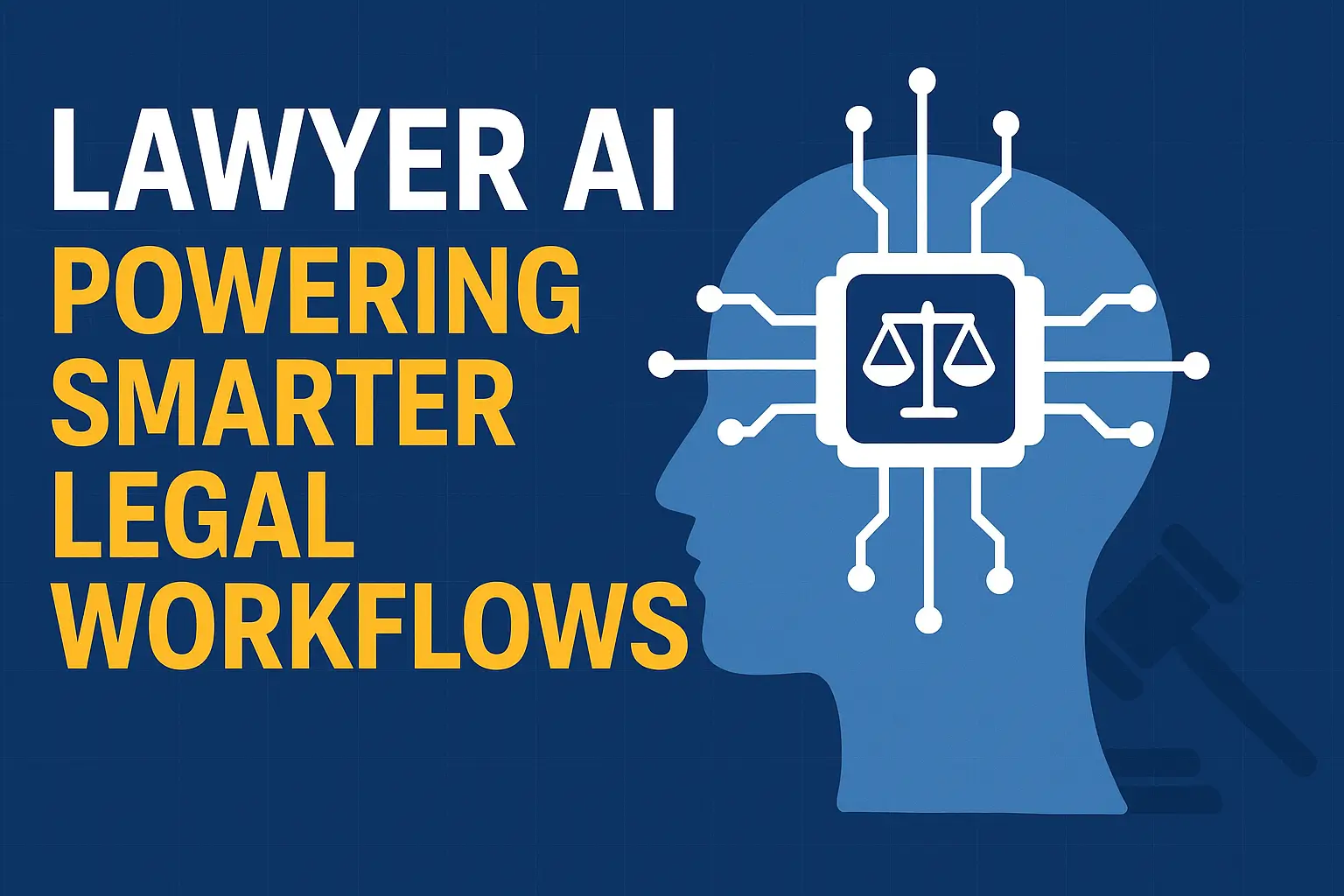
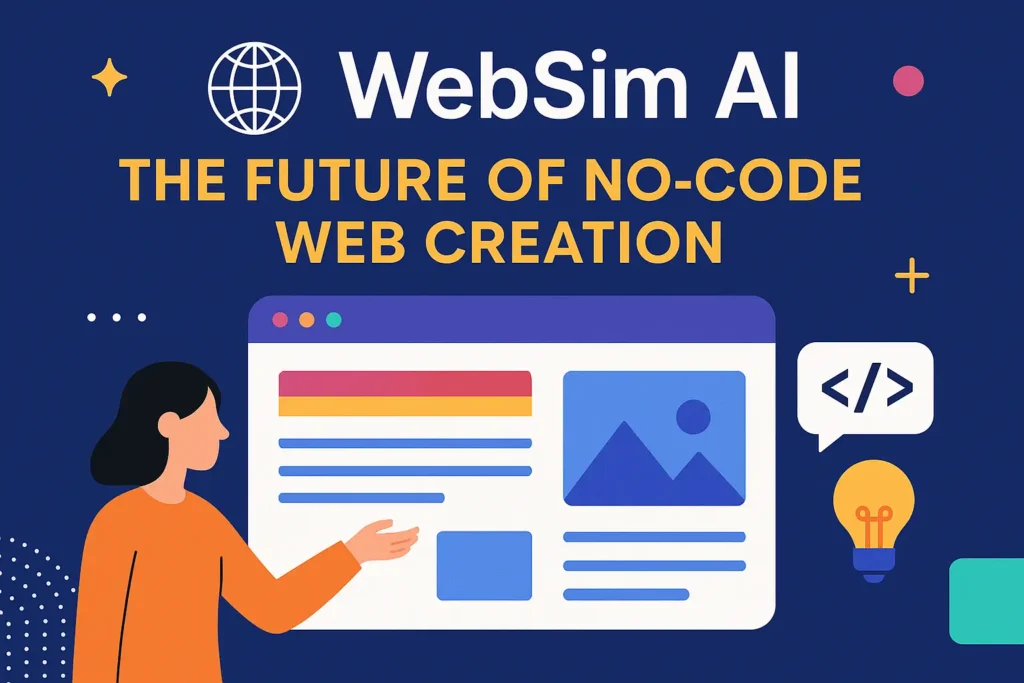
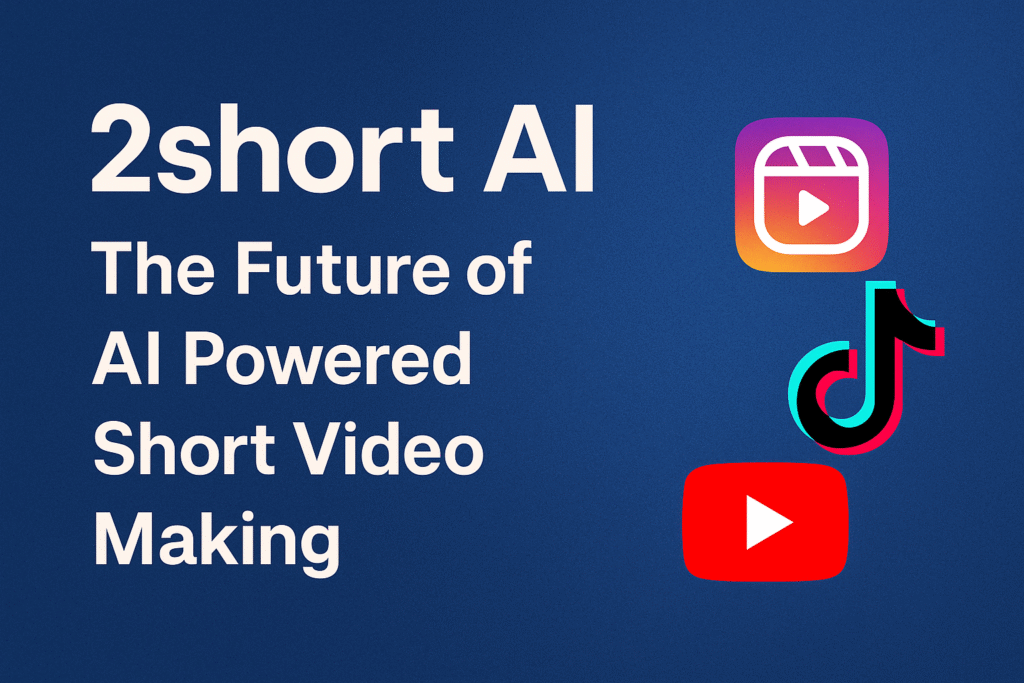
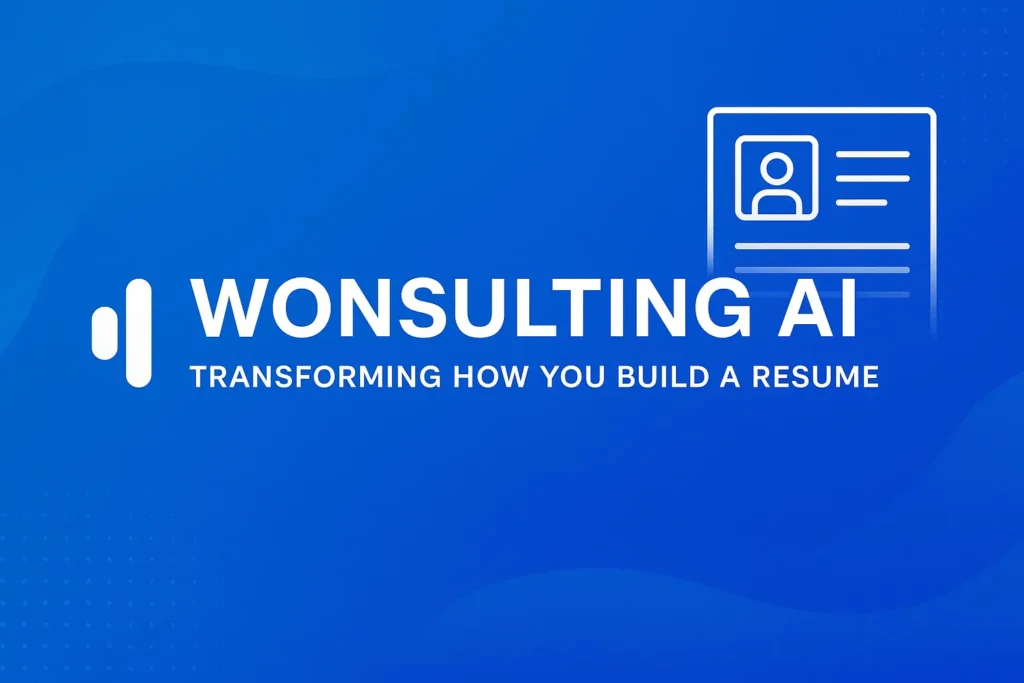







Leave a Comment